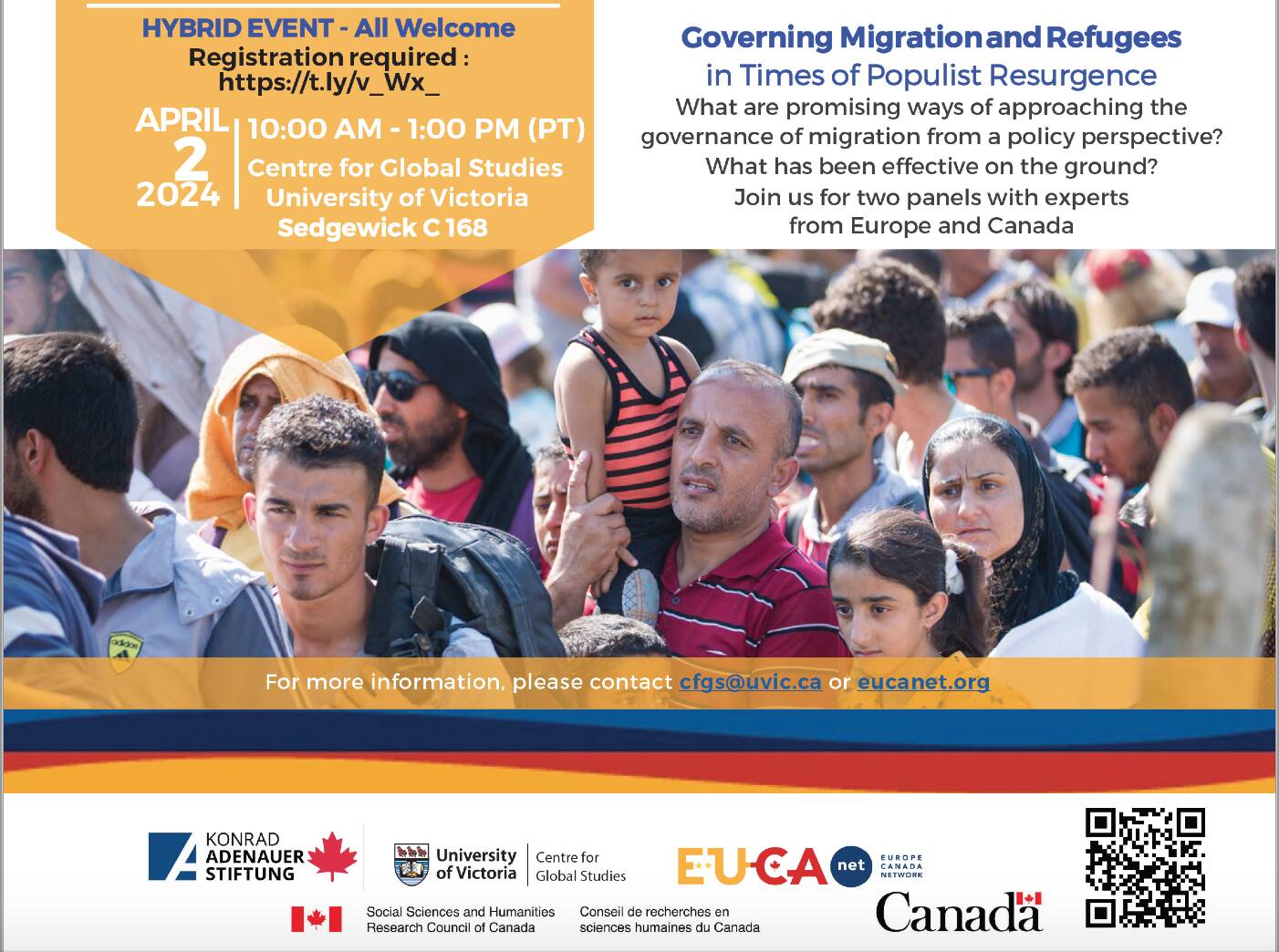Video: Memory Politics through National Lenses
Video : Re-nationalizing the commemoration of the past? Memory Politics through National Lenses –Webinar
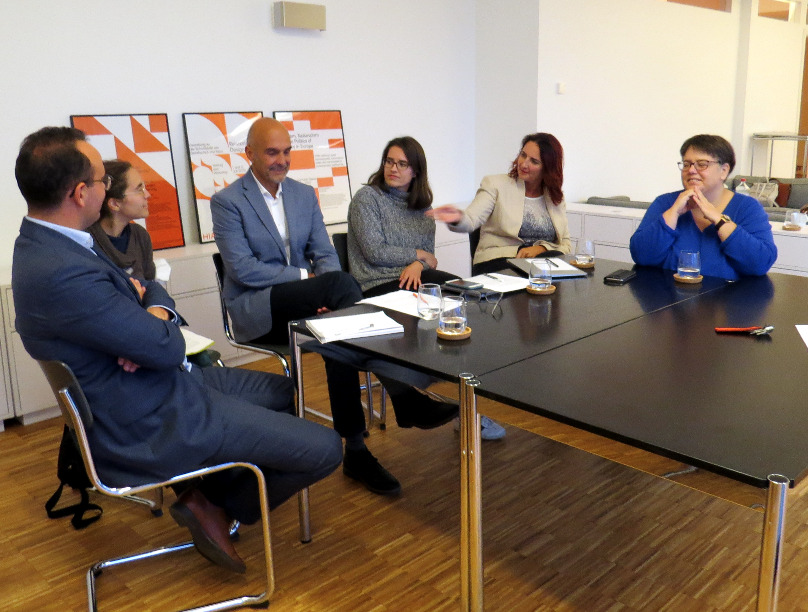
European Memory Politics Workshop
Summary by Fazila Mat, University of Victoria
The sixth webinar of the “European and North American Perspectives on Commemorating and Addressing Past Injustices” project co-funded by the Konrad Adenauer Foundation Ottawa showcased Jean Monnet Network European Memory Politics. Moderated by Oliver Schmidtke, it addresses the connection between the interpretation of the past and current political and social realities in national contexts with a focus on the cases of Canada, France, Hungary, Russia and Poland. As stressed by Schmidtke, our societies still struggle to come to terms with past traumatic events (e.g. the World Wars, fascism, the Holocaust, colonialism, and the legacy of communism and the Cold War divide) and find proper ways to commemorate and relate them to current social and political realities. The webinar’s aim is to provide an understanding of the commemoration of the past in different national contexts, the reasons and the ways in which they become important and the actors driving memory politics.
The first presenter, Matt James addresses what he defines as “Canada‘s no-fault culture of memory and redress”. This concept expresses the fact that “in Canada, responses to historical injustice have until very recently almost entirely ignored questions around perpetrator responsibilities and retributive justice”, explains James.
One key example of this culture is represented by the Truth and Reconciliation Commission’s (TRC) report issued in 2015, which dealt “simply with the suffering and abuse of the indigenous children in residential schools, not with the responsibility of perpetrators”, notes James. The reasons for this choice can be found in “Canada’s status as a moral super power” – which refers to the fact that Canadians are used to reproach others while they are less used to feelings of guilt and shame. The “ timing” – namely the fact that the politics of redress historical injustice arrived in Canada in the 1990s when “there was a real focus on voices of survivors and victims and not so much focus on legality, forensics and perpetrators” is a second reason. Finally, the fact that “Indigenous communities in Canada were also focused on healing and rebuilding their communities, and not terribly interested in the complex details about the specifics of who was responsible for perpetuating the wrongs”, is presented by James as a third reason for the choice of the TRC
The scholar notes that, after a very long time, in Canada there is now a focus on symbolic retribution and on naming and shaming perpetrators. Figures formerly commemorated “are now associated with white supremacy and indigenous genocide in Canada”, says the scholar, stressing that while the no-fault redress culture is eroding, there is also a “predictable backlash” among white supremacists groups and right wing politicians.
James adds that the international context has contributed to this change. There is “almost a kind of a global battle between authoritarianism, right-wing populism, the forces associated with Trump on the one hand and on the other hand Balck Lives Matter”. Domestically, there has also been a “focusing event”, the discovery of approximately 215 mass graves of children at a former residential school in May 2021, at the Tk’emlúps te Secwe̓pemc, in Kamloops British Columbia.
For James these are signs of a move away from a no-fault culture of redress that is likely to continue. “That is going to mean that Canada is joining countries like Australia and Germany that have been more in the way of significant battles over politics of shame, introspection, blaming and naming”, he concludes.
By comparison, in the case of France, as explained by Francesca Tortorella “the dominant discourse since the end of the Second World War is the insistence on the country as the cradle of human rights and universalism”. Today “the discourse that exalts the French Republic and its values of liberty, equality, fraternity and secularism” is as strong as ever, says Tortorella, arguing that the French nation does not seem to recognize its own plurality.
Tortorella notes that beyond stances taken by some intellectuals and activists, colonialism and collaborationism have started to appear in official political speeches only in the 1990s. Moreover, in current public debates there is a resurgence of speeches denying national responsibilities and an inability to conceive a national plurality.
Regarding the case of colonialism, “the other great memory subject in France”, Tortorella says that politicians acknowledge some dramatic events of the colonial period. But often, “this same speech is ambiguous, and the end of traditional colonial domination has only defined new forms of domination that are justified by a national discourse that does not recognize responsibilities”.
Tortorella concludes suggesting that when tackling the issues of collaboration and anti-Semitism, colonialism and racism, it is important to recognize a non-linear history and a conflictual memory. “In this way, it will be possible to create an inclusive and even international memory”, she stresses.
Diàna Bartha provides insights to memory politics from Hungary, focusing on how the Hungarian government instrumentalizes the memory of the Holocaust. Bartha talks about the events occurred in 2014, the 70th anniversary of the Hungarian Holocaust. In this year the Hungarian government – led by Viktor Orbán – erected on Liberty Square, in Budapest, a memorial called the “Memorial of the German Occupation of Hungary”. Bartha explains that this memorial is an example of how the Hungarian government uses the memory of the Holocaust for its own purposes, without remembering the victims of WWII.
Bartha first provides some historical background with regards to Hungary’s role during WWII, noting that in 1944 in less than two months, close to half a million Jews were deported to Auschwitz. Something that could not have happened without the support of the Hungarian government, civilians, and society – notes Bartha.
Against this historical backdrop, Bartha sheds light on the symbology of the “Memorial of the German Occupation of Hungary”. “The narrative of this monument is that Nazi Germany was responsible of the deportation and the murder and persecutions of the Jews, while Hungary was innocent and Hungarians were victims”, says Bartha. As a reaction to this monument a counter-memorial started to appear there. This counter-monument, explains Bartha, contests the meanings of the official one, especially the notion it conveys depicting Hungary as a victim of German occupation. As the counter-monument consists of features such as photos of the deported people and everyday artefacts, it is permanently changing and growing. At the same time, all of the elements which appear there demonstrate the responsibility of Hungary while also symbolizing the real loss, concludes Bartha.
Tackling Russia’s case, Alina Cherviatsova compares the approaches to memory politics of Russia with Central and Eastern European Countries (CCE countries). Cherviatsova notes that Russia has adopted a narrative of “self-glorification”, while the second group of countries bases its narrative on “self-victimization”. “In Europe we have the so-called memory wars”, says Cherviatsova, defining the phenomenon as a “clash of state sponsored historical narratives”. This difference in interpretation entails historical truths that contradict one another and can be punishable by the legislation.
In this regard, Cherviatsova points to a few articles of the Russian law and their consequences. Among the various examples provided by the scholar, there is Article 67 of the Russian constitution, adopted in 2020. This article sets the Russian Federation as the “legal successor of the USSR on its territory and in respect to the international organizations and international treaties”, while also affirming that “the Russian Federation respects the memory of the Fatherland and protects the historical truth”. Regarding this article, Cherviatsova notes that “the Russian Federation is seen not just as a legal successor of the USSR, but also as its moral successor”. “The name USSR, which was not included in the constitution, now is in the text of Russia’s basic law”, stresses the scholar. From now on “the historical truth, whatever it is, is a constitutional value for the Russian Federation to be protected through different means, including the use of criminal sanctions”. Moreover, in July 2021, The Strategy on National Security of the Russian Federation stipulated that the attempts to falsify Russian and world history threatens Russia’s national security, showing that history is also “a matter of national security”, comments Cherviatsova.
To summarize, three trends can be traced in Russia’s current approach to memory politics. The country is promoting a narrative of self-glorification; historical memory has become a constitutional value and a matter of national security; memory politics is getting more aggressive. As a consequence, Cherviatsova foresees further decline of democracy, more violations of free speech and tensions about history.
Similarly, speaking about the case of Poland, Piotr Oleksy notes that this country also participates in the European Memory wars. “Historical traumas are the main lenses that our rulers use to define our place in Europe and to define our relations with our neighbours”, says Oleksy. He continues and states,”but at the same time we would have to say that there is another memory war that is inside Polish society”.
Oleksy stresses that at the beginning of the 1990s, Polish society and the elite were focused on the big national project of joining the European Union and NATO. “After that, history has started to become more and more important in our public life”, says the scholar, explaining that after joining the EU and NATO the Polish people began to focus on how to “sort out” their history. Thus, in the 1990s and at the beginning of 2000s liberal elites tried to develop a Polish patriotic national identity – a civic or “soft patriotism” – in the shape of the European memory culture.
However – notes Oleksy – this approach created some kind of emotional vacuum with regards to the problem of the recognition of ethno-national identities, which were quite important to Poles, adds Oleksy. “Today right-wing populists use that situation by reshaping that vacuum into resentment and they feed it and transform that emotion into the question of national dignity. That is in the phase where we are now”, he concludes.
Approaching the topic of memory politics from a European perspective, Birte Wassenberg notes that the concept of “European memory politics” is still quite recent. Wassenberg talks about the Franco-German border region’s European memory culture which, she notes, is about peace and reconciliation. In this case what is commemorated is a community of states, peace and integration. This is expressed through symbols of integration that can be seen in various European capitals and EU institutions, adds Wassenberg.
Beside certain personalities like the founding fathers of the EU who are commemorated, there are also bilateral contexts in which the commemoration takes place, as exemplified by the Weimar Triangle. The question, according to Wassenberg, is rather how fragile this memory politics is and how to make this European memory politics compatible with national memory politics.
Another issue underlined by Wassenberg is that although peace was the primary motive at the beginning of EU integration, it is now taken for granted, especially by young generations. However, the scholar also notes that one of the ideas of a common Europe is not only peace, but it is a common family, which entails mobility and free circulation. Wassenberg stresses that the crises affecting the EU – as in the recent Covid case – should not put into question free mobility, otherwise that would raise questions on the meaning of EU integration.
A final note concerns the forces of anti-Europeanism, “because the Eurosceptic forces are growing stronger not only in Central and Eastern Europe, but also in the founding member states of the EU”, says Wassenberg. Ultimately the question, according to the scholar, is “how to combine national memory politics with a European memory politics”.
PANELISTS
Matt James (University of Victoria) studies the politics of reparation and transitional justice and also has expertise in the fields of Canadian politics, constitutionalism, and social movement studies.
Francesca Tortorella (Université Catholique de Lille) works at the Université Catholique de Lille. She has a PhD in Contemporary History from the University of Strasbourg (2019).
Diána Gabriella Bartha (Eötvös Loránd University Budapest) has a degree in Sociology from Eötvös Loránd Science University of Budapest. Her thesis examines the identity of Hungarian minority in Romania with qualitative and quantitative methodology
Alina Cherviatsova (Ghent University) is a Marie Sklodowska-Curie Research Fellow at the Human Rights Center, Ghent University. Prior to this, Dr. Cherviatsova was an associate professor for comparative public law, human rights, and international law of the V. N. Karazin Kharkiv National University (Ukraine) and a coordinator of three Jean Monnet Modules.
Piotr Oleksy (Adam Mickiewicz University, Poznan) is an associate professor at the Adam Mickiewicz University in Poznań (History Department) and publicist collaborating with leading Polish journals.
Birte Wassenberg (University of Strasbourg) is Professor in Contemporary History at the Institute for Political Studies (IEP) of the University of Strasbourg and member of the Research Institute for History Raymond Poidevin at the UMR Dynamiques européennes.
MODERATOR
Oliver Schmidtke (University of Victoria, Centre for Global Studies and HIAS fellow) is director of the Centre for Global Studies at the University of Victoria. He is a UVic European Studies Scholar and a former Jean Monnet Chair in European History and Politics in the Departments of History and Political Science at the University of Victoria.
For more webinar videos on Memory Politics and more visit: Webinars Videos
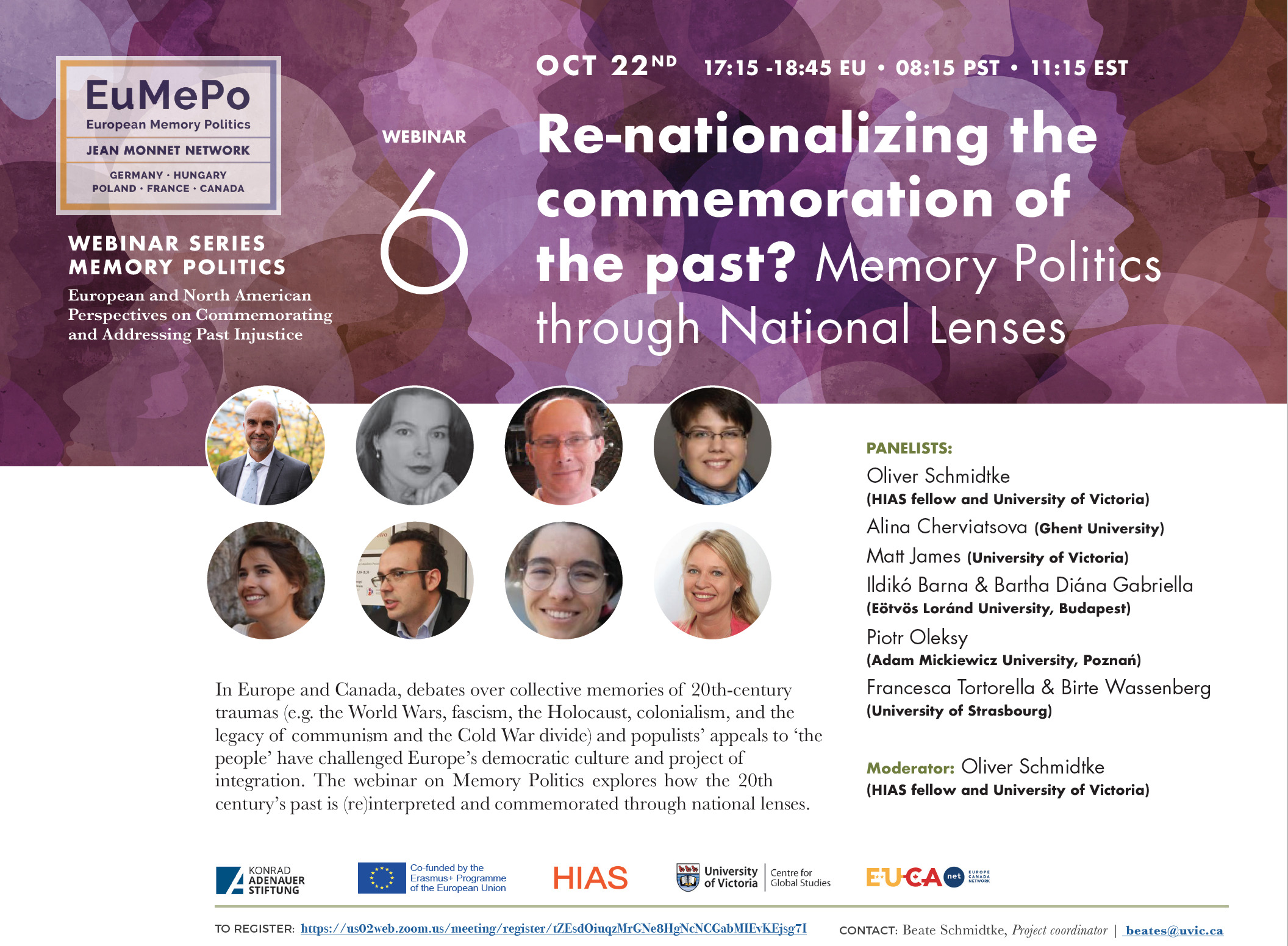
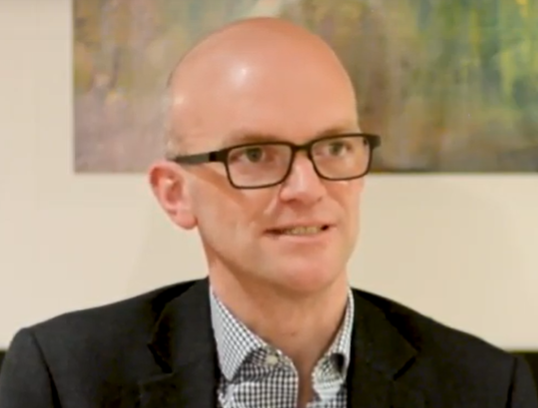
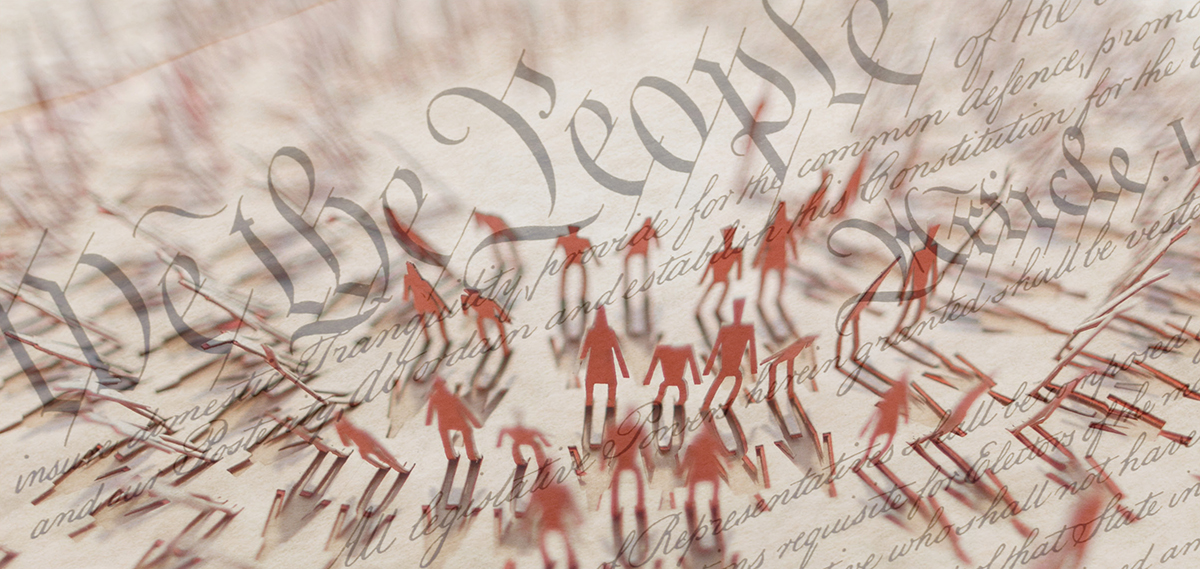
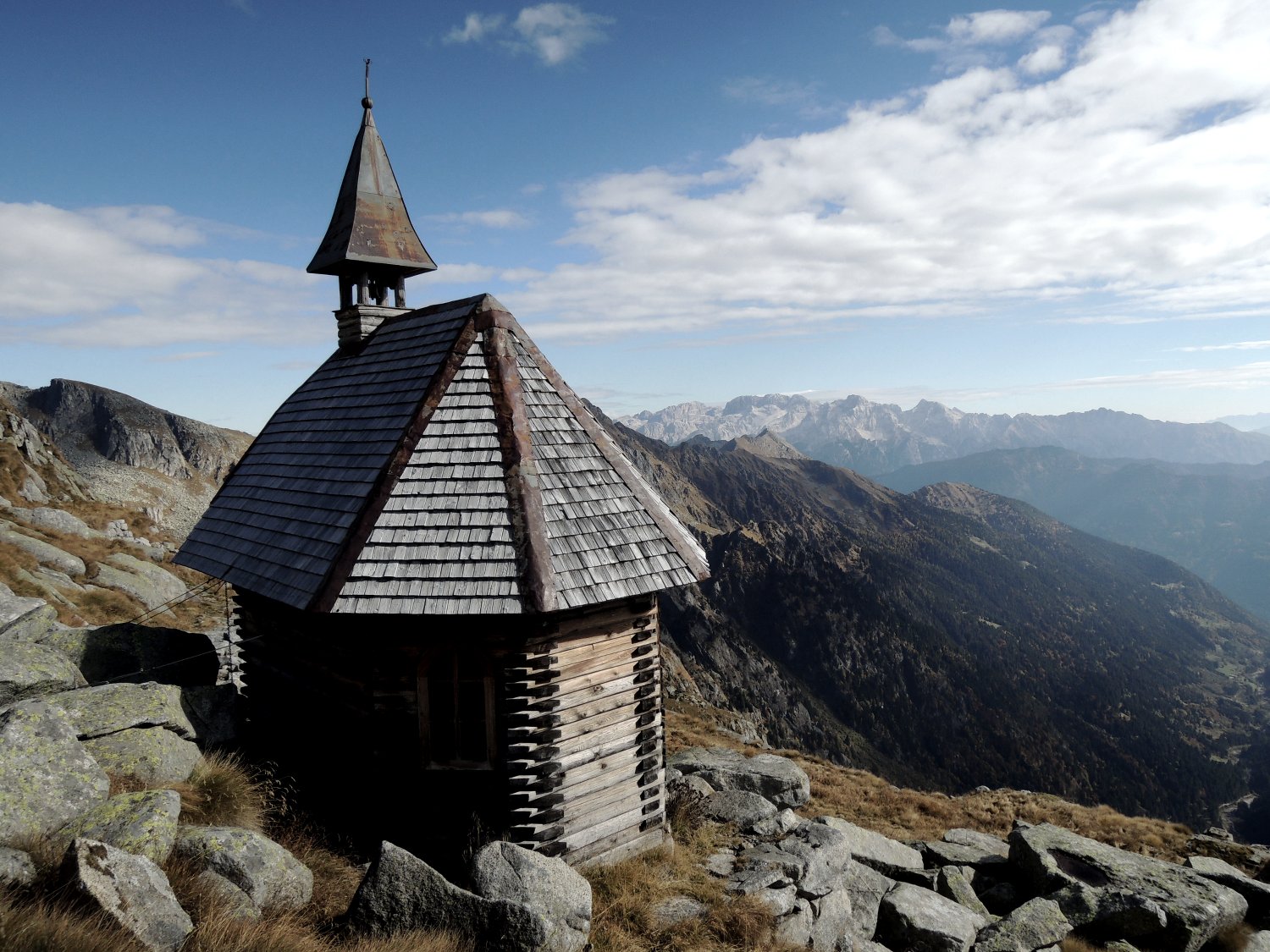
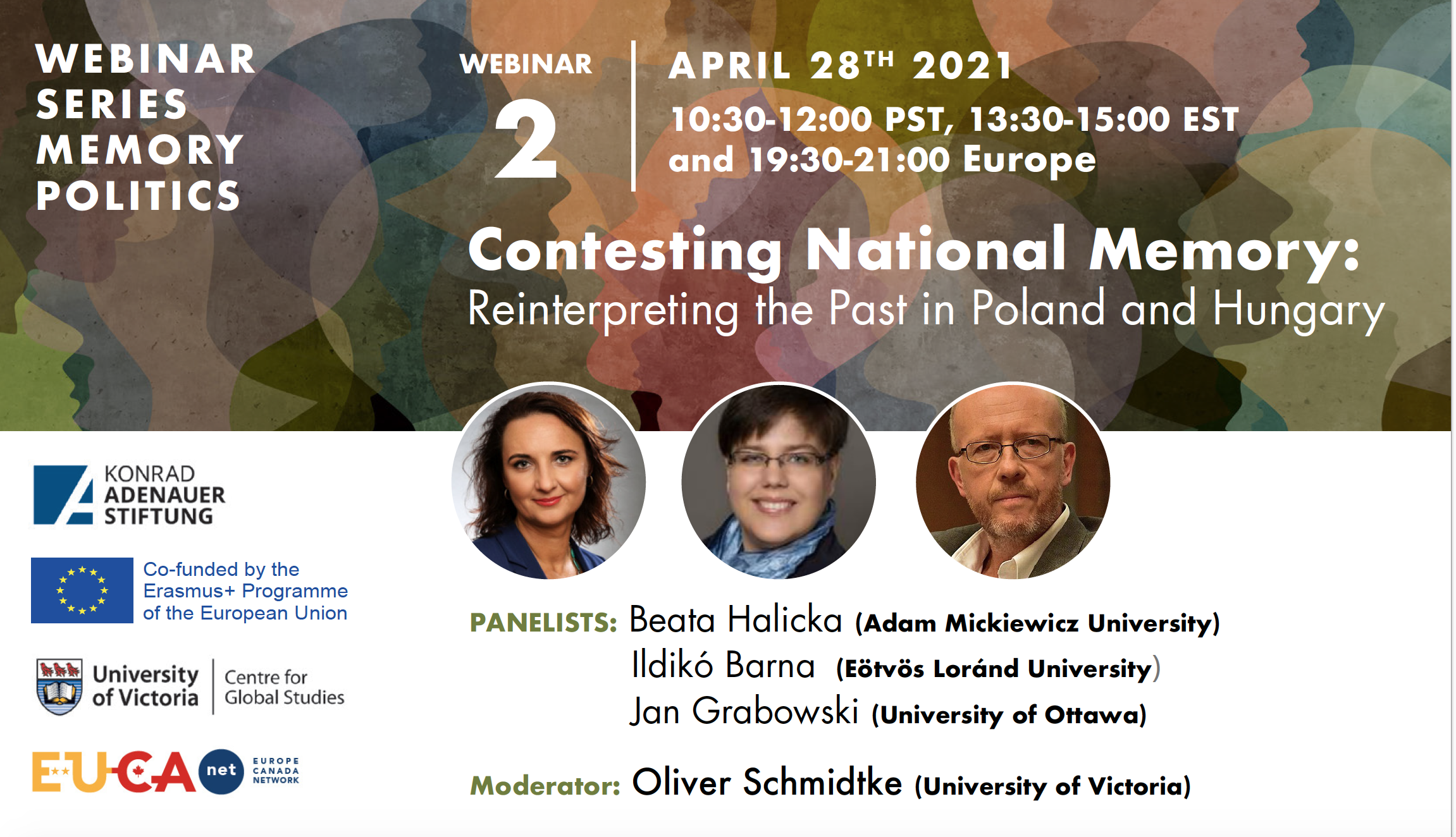
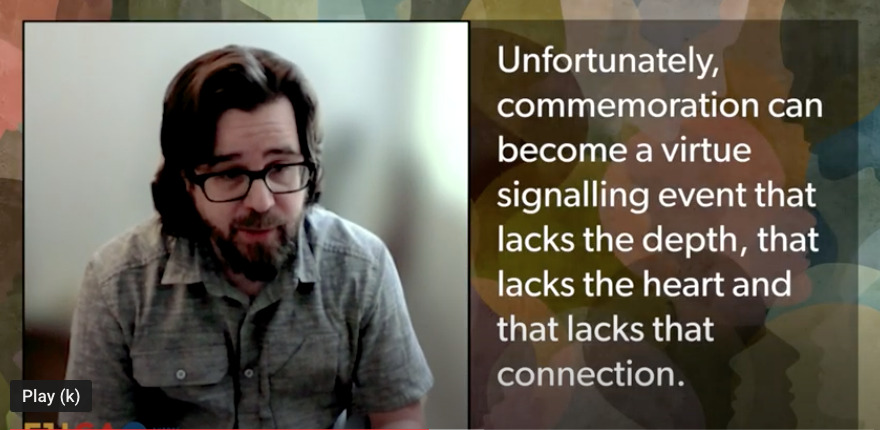

 https://www.dw.com/de/f%C3%BCnfte-amtszeit-von-angela-merkel/a-53453226v
https://www.dw.com/de/f%C3%BCnfte-amtszeit-von-angela-merkel/a-53453226v